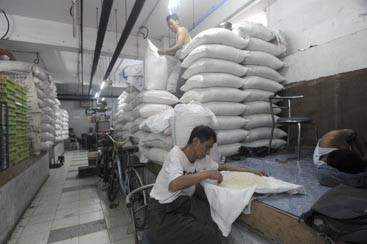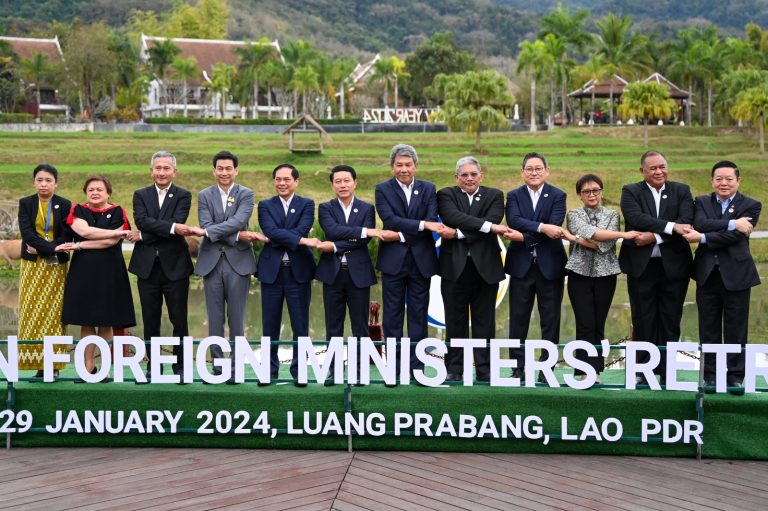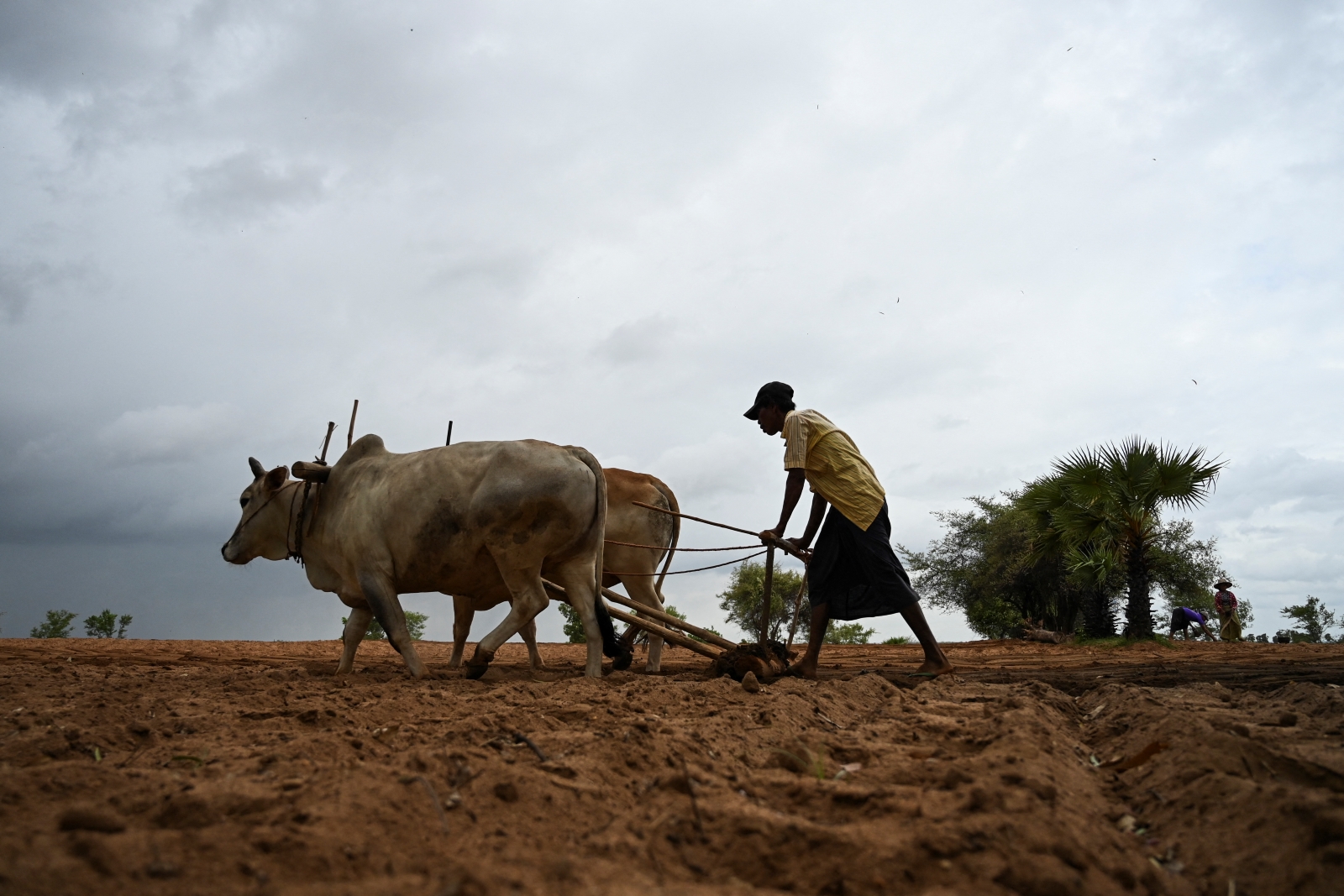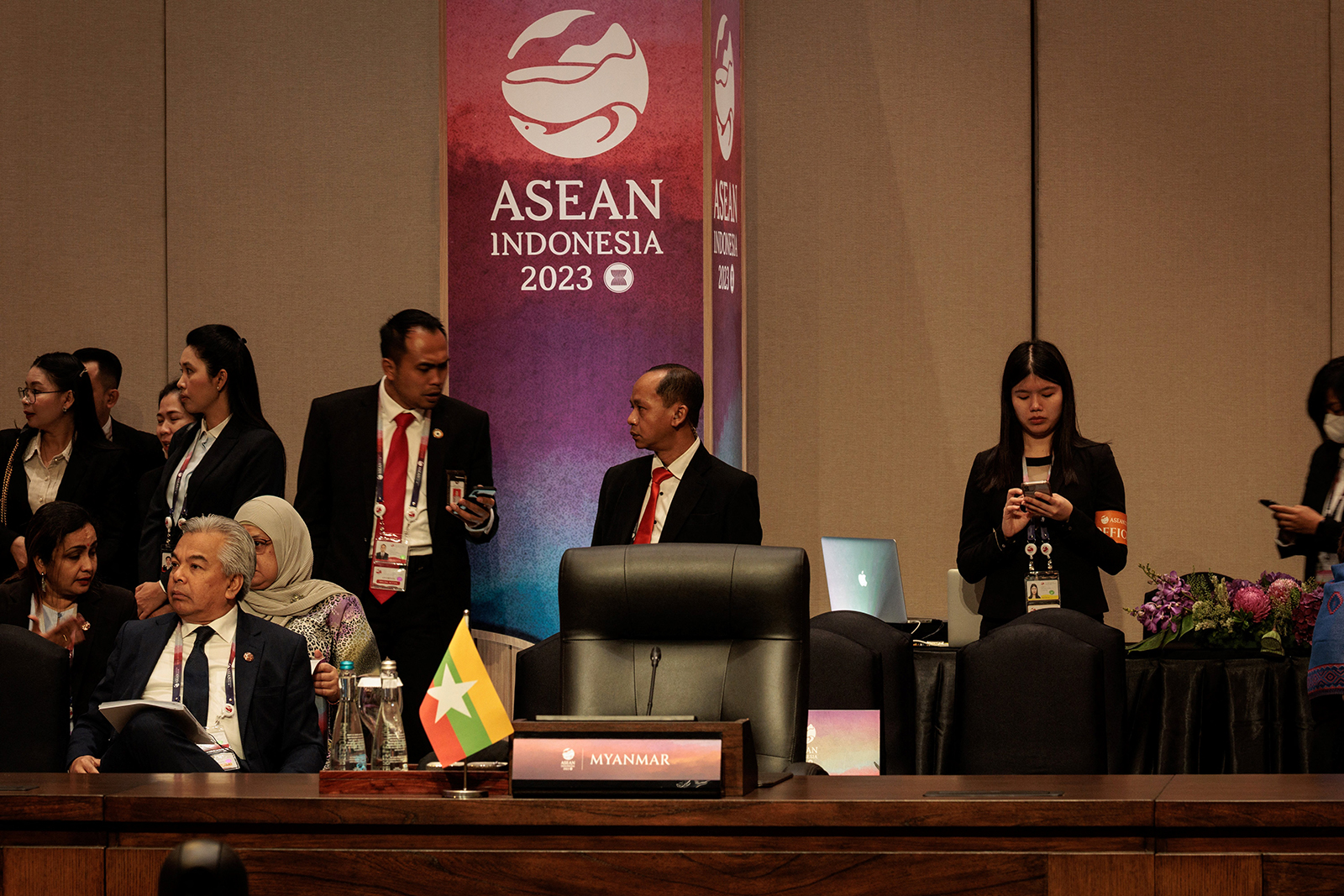With the ASEAN Economic Community looming large and competition expected to increase, SMEs are struggling to access capital and overcome their distrust of banks.
Colourful billboards advertising products from some of the world’s most recognisable brands overlook a busy Yangon intersection where two years ago there was little apart from untidy shrubbery and piles of trash. Some are calling the intersection of Bogyoke Aung San and Sule Pagoda roads Yangon’s Times Square.
The headlines from Myanmar’s economic transformation have focussed on the arrival of international players such as Carlsberg, Unilever and Coca-Cola, but in terms of numbers the economy is dominated by smaller, local businesses that have long had to negotiate an unwelcoming investment climate to survive. Figures from the Industry Ministry’s Central Department of Small and Medium Enterprise Development show there are 126,237 SMEs in Myanmar, accounting for 99.4 percent of the industrial sector.
For years, the economy has been dominated by a handful of conglomerates and companies linked to the military, but the government has recognised the importance of SMEs and is encouraging their growth. A law was enacted in April to ease the registration process for SMEs and the government offers them cheap loans. Despite that, Myanmar remains a challenging country in which to do business, particularly for those with limited resources.
Access to finance
In its January 2015 report ‘Myanmar Investment Climate Assessment’, the World Bank said “access to finance is cited most frequently as the main obstacle to doing business in Myanmar.” The report said 92 percent of businesses rely on their own funds and just one percent of fixed asset investment costs were financed by bank borrowing.
“Access to finance is probably the biggest [challenge facing SMEs],” said Jared Bissinger, an economist who monitors Myanmar’s business environment. “It is not just getting finance to invest, but also getting access to working capital.”
Myanmar citizens have long had an uneasy relationship with financial institutions. The demonetisation of some bank notes – twice – during the late 1980s was a key catalyst for the 1988 uprising and Myanmar also suffered during the 1997 Asian financial crisis. The bankcrisis of 2003 further eroded public trust in the banking sector.
“There still remains a distrust of banks, as people are still worried about what happens when their cash is transferred,” said Emmanuel Maillard, Myanmar country director for Building Markets, an NGO that works to build the capacity of SMEs.
“I’m fairly sure that when some people are paid into their bank accounts, they withdraw almost all their money; that’s only natural given the past, but I think the fear is lifting,” said Mr Maillard, adding that domestic banks are also planning SME strategies.
The arrival of the first nine foreign banks licensed to operate, albeit with limited services, and the capacity growth of domestic banks has helped to improve the financial infrastructure, but there is still a long way to go. “There are some improvements in the banking sector, but it’s not an area where we’ve seen fast-tracked liberalisation. People are still afraid to put money into banks,” said Mr Bissinger.
He believes one way the government could help to build trust in banks is to offer deposit insurance to protect investments. “Realistically banks do fail, but you just have to have a system that retains confidence in a banking system, even if an individual bank fails.”
Land prices
Yangon SME Ganga Furniture exported many of its products to the United States until it banned imports from Myanmar in 2003 as part of its sanctions policy and the company adapted by selling to Asian countries. Managing director Alexander Lee YS said the company has seen some benefits from economic reforms but has been affected by high land prices.
“It [land prices] is an issue for us,” he said. “We had a showroom previously, but had to close it last year because the price had tripled. It creates an issue for us because we cannot be visible.” Logistics company Ingyin has also been affected by high land prices, said its director U Myo Minn Khine.
“Our warehouse costs have increased by 40 to 50 percent year-on-year, so we can continue with the work, but our profit margins are less,” U Myo Minn Khine said. Ingyin has to pay 13 months’ rent in advance for the warehouse, including one month for the agent’s fee, which is difficult for a company earning a monthly income.
“The issue of paying rent 12 months in advance is a huge burden on smaller companies,” said Josephine Price, a director of Anthem Asia, a private equity firm specialising in SMEs. “It prevents long term planning and creates a lack of certainty for companies,” she said, adding that the situation seemed to have eased in recent months. Ms Price says the government could enact a law banning rent payments of a year in advance, but the issue does not appear to be near the top of the reform agenda.
The deputy director-general of the Industry Ministry’s SME Development Department, Daw Aye Aye Win, acknowledges that advance rents are an issue for SMEs but says the government can’t take action for the time being.
Personnel problems
A lack of skilled workers also ranked highly in the World Bank report. The shortage is not surprising in a country with limited vocational training institutions and in which for decades there were few opportunities for workers to upgrade their skills. An influx of foreign companies and the return of Myanmar entrepreneurs from abroad since reforms began could help to address the shortage, along with moves to upgrade vocational training.
Mr Lee says one of the main challenges for Ganga Furniture is acquiring employees with technical know-how in an industry that requires extensive knowledge of wood-based products. “The quality of labour is such that the education level is maybe 4th grade maximum, although if you’re lucky you can find someone who [has completed] 8th grade. Then, when you can find someone with the knowledge, they have lived abroad, so they are too expensive,” he said.
Mr Maillard said that although the arrival of international companies could have a negative impact on SMEs in the short term, with staff attracted by potentially more opportunities at larger companies, in the longer term, the employment market would benefit from increased opportunities and training.
The AEC: Horrible monster or beautiful princess?
The ASEAN Economic Community is due to be inaugurated on December 31, 2015. The Association of Southeast Asian Nations says the AEC’s goal of “regional economic integration will be achieved by the free movement of goods, services, investment, skilled labour, as well as a freer flow of capital” throughout the 10-member bloc.
With Myanmar’s economic transformation still in its infancy and SMEs in the early stages of adapting to increased competition from abroad, there have been concerns in the Myanmar business community about what the AEC will mean for their operations.
“They [SMEs] have expressed very strong interest in hearing more about the AEC and understanding it better, and there are the normal fears as well as hope that something will change,” said Mr Maillard. “It’s definitely on the agenda, but do people think it’s a big horrible monster or a beautiful princess in a tower? I don’t know,” he said.
U Myo Minn Khine accepts that the AEC will bring increased competition, but believes Ingyin’s market knowledge and contacts will give it an advantage over outsiders. “Whenever there are political changes, they will affect us either directly or indirectly, but we have strong local knowledge and contacts, which will help us,” he said.
Mr Bissinger believes some Myanmar firms will have opportunities to take advantage of the AEC even though many are focussing on its negative aspects. “Realistically, you have had mostly free trade with Thailand and China for decades, although perhaps not in a formal way,” Mr Bissinger said.
“Will we suddenly see an influx of companies from ASEAN on December 31? I don’t think so. This country has gradually been opening up in recent years and we didn’t see a huge arrival on day one. I can’t see that happening this time,” he said. “It can be difficult to get things done here, and [Myanmar] people know how to negotiate that system, whereas a business person coming from abroad will tend to have a more difficult time. I think people underestimate the importance of local knowledge and connections.”
The growth model of South Korea was an example of how Myanmar could capitalise on the AEC, said Mr Bissinger. “Look at how [South Korea] developed. You had a lot of foreign companies coming in and people in South Korea learned how to do things from foreign influence,” he said.
“If a big foreign company comes in, they are likely to sub-contract a lot of things locally, so you have the benefit of that, and those sub-contractors will acquire skills and in 15 years, a few of them will go on and start their own business. Everybody keeps talking about the skills deficit here; well here’s one way of addressing that.”







